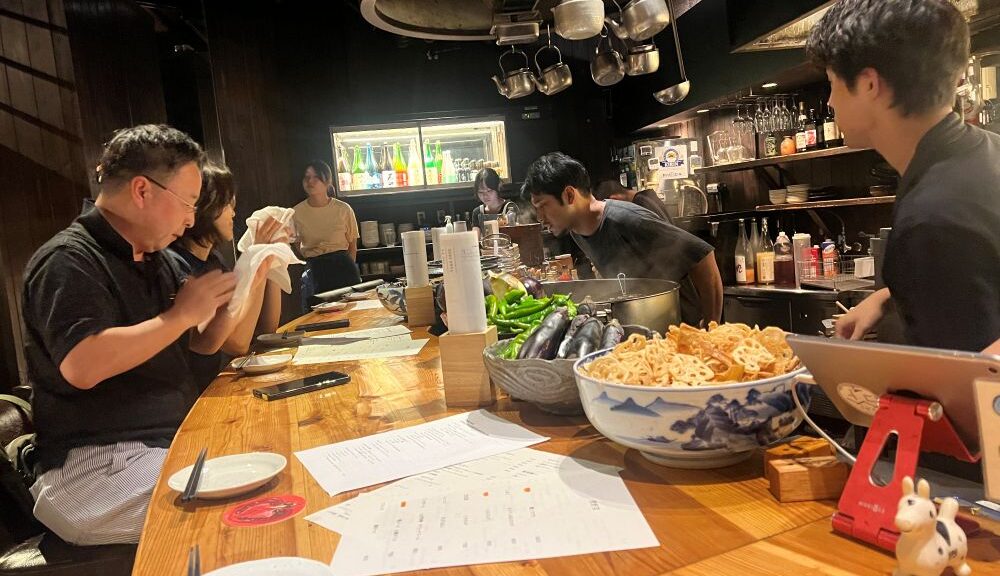
When I first arrived at the narrow entrance of Onikai near downtown Kyoto, I did not expect much. Inside this small restaurant, however, I found a huge counter filled with young, energetic staff who were joking and moving quickly. Since this place felt alive, it reminded me of Dutch Bros in California.
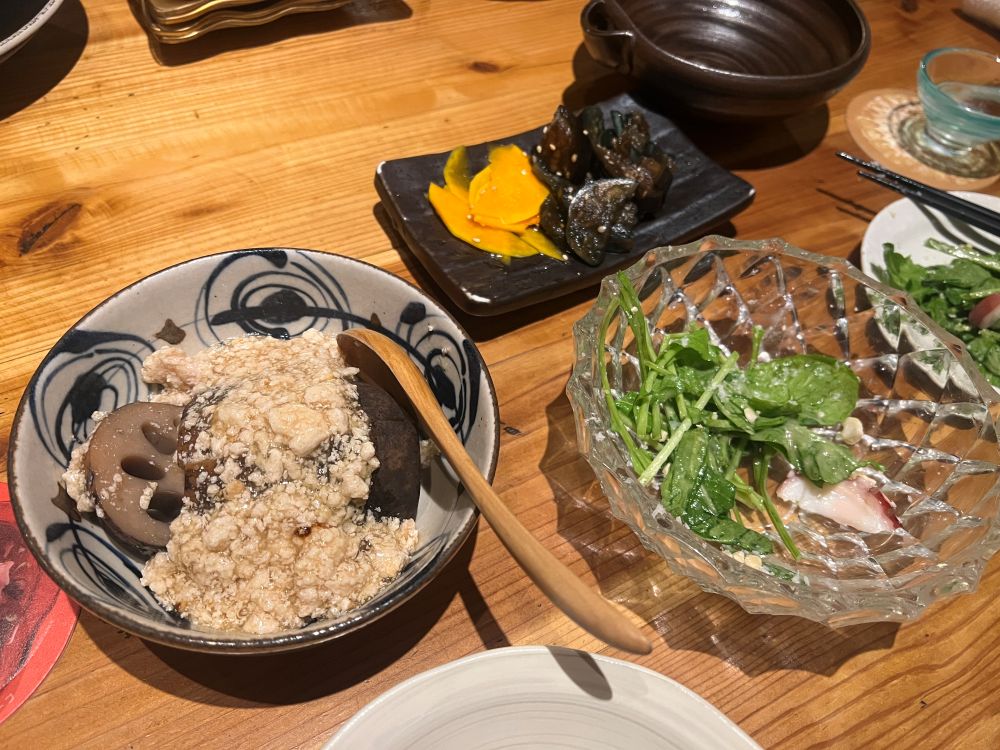
I ordered several dishes: an arugula salad, an eggplant topped with beef sauce, a mushroom rice cooked in a clay pot, and an eggplant slowly burnt and served with sesame. They were light and comfortable. Even when beef was used, they supported vegetables, not dominate them.
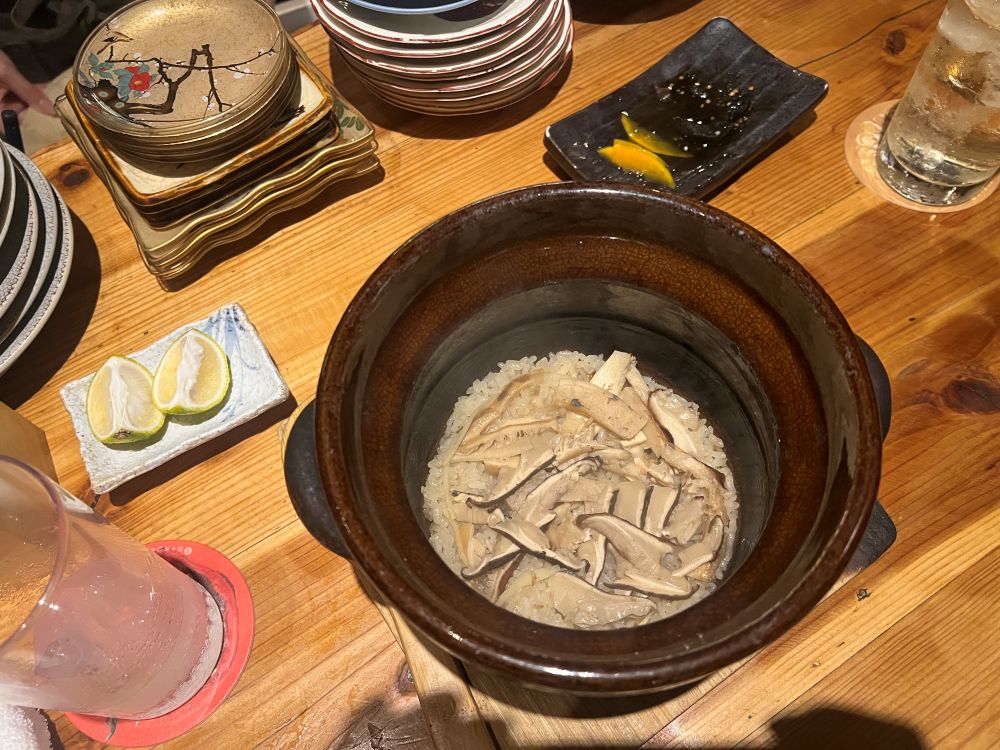
Later I learned that Onikai is part of the Isoya group, which runs several restaurants supplied by Isofarm, a local farm near Kyoto Station. Their simple philosophy is to serve vegetables that are fresh, local, and cooked to highlight their natural taste.
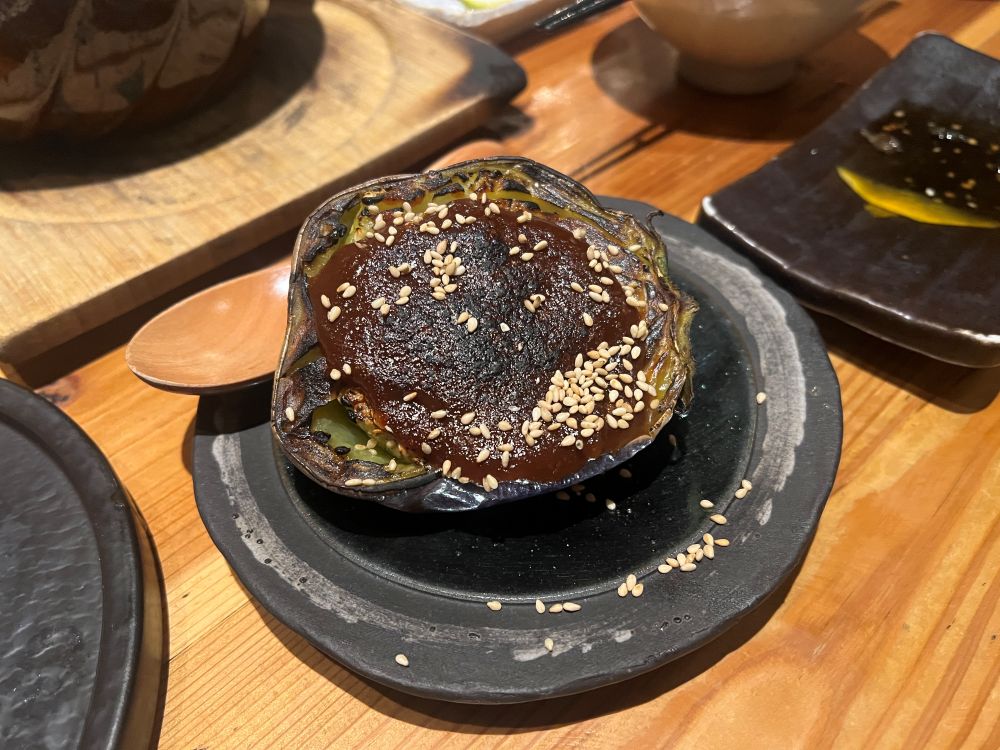
This vegetable-first idea feels right for today’s diners. People care about where their food comes from, but they do not all want to be vegan. Balancing freshness, taste, and casual atmosphere reminded me of how In-N-Out in California became trusted and popular by keeping food local and simple.
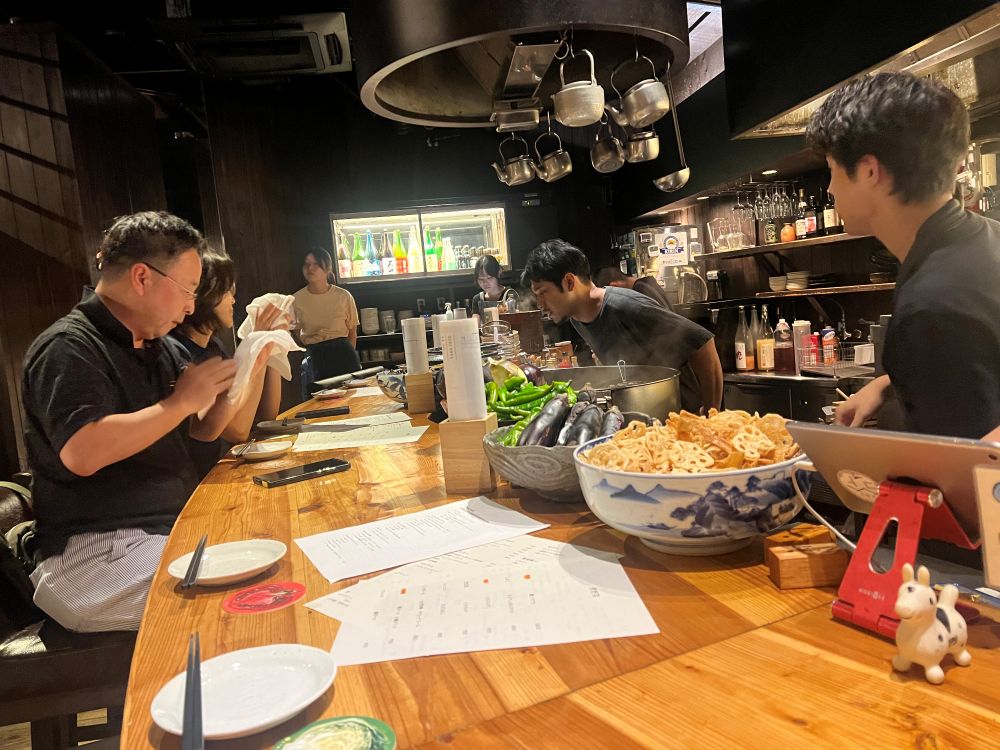
Dining at Onikai made me think more about what to eat in daily life. In many Western countries, people often focus on which vitamins or supplements to take every day. But Onikai’s vegetable-centered dishes remind me that health can come from everyday meals, not from bottles or pills.
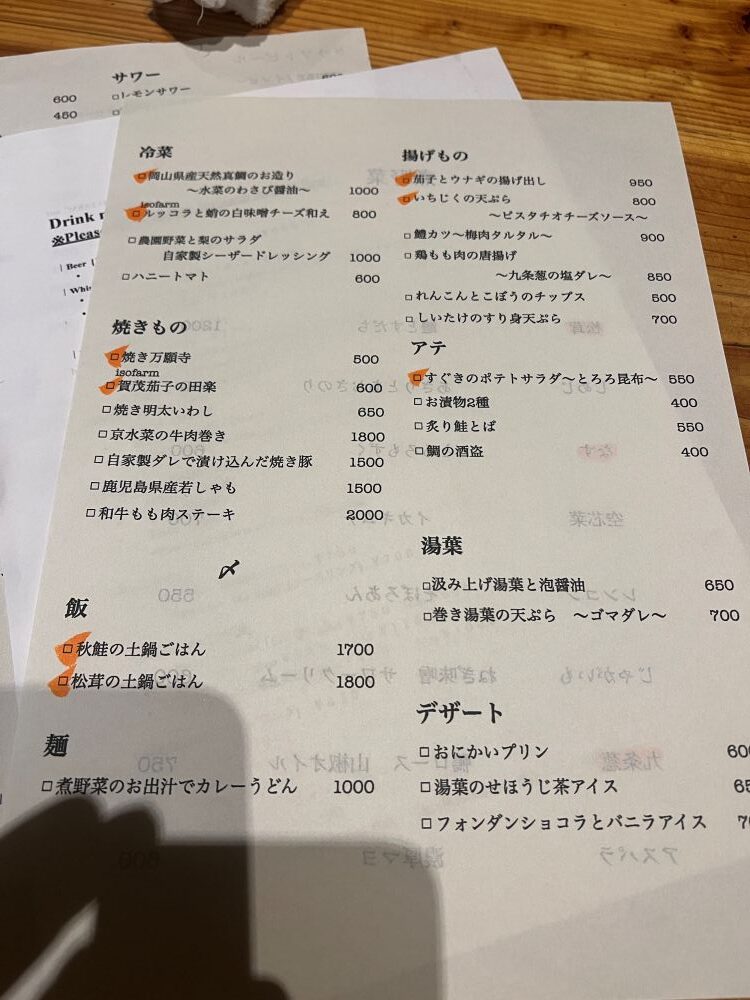
I believe vegetable-centric meal will gradually be adopted by more diners around the world, not as a trend, but as a sustainable way of living.
***
Reference
Sun, J. J., & Pham, M. T. (2025). What Makes Consumption Experiences Feel Special? A Multi-Method Integrative Analysis. Journal of Consumer Research, ucaf033.
This article addresses a simple theoretical question of high substantive relevance: What makes a consumption experience special in a consumer’s mind? To answer this question, the authors report an extensive multi-method investigation involving a grounded theory analysis of numerous consumer narratives and in-depth interviews, a field survey, a scale development study, a natural language processing analysis of more than 3 million Yelp reviews, a preregistered multi-factor causal experiment (and its preregistered replication), a blind comparison of hundreds of matched visual Instagram posts by third-party observers, and several small application studies. The findings converge in identifying three major psychological pillars of what makes consumption experiences feel special to consumers, each pillar involving different facets: (a) uniqueness, which arises from the rarity, novelty, irreproducibility, personalization, exclusivity, ephemerality, and surpassing of expectations of the experience; (b) meaningfulness, which pertains to the personal significance of the experience in terms of symbolism, relationships, self-affirmation, and self-transformation; and (c) authenticity, which relates to the perceived genuineness and realness of the experience in terms of its psychological proximity to some original source, iconicity, human sincerity, and connection to nature. As illustrated in the General Discussion, the findings have important substantive implications for the engineering of hedonic consumption experiences.

